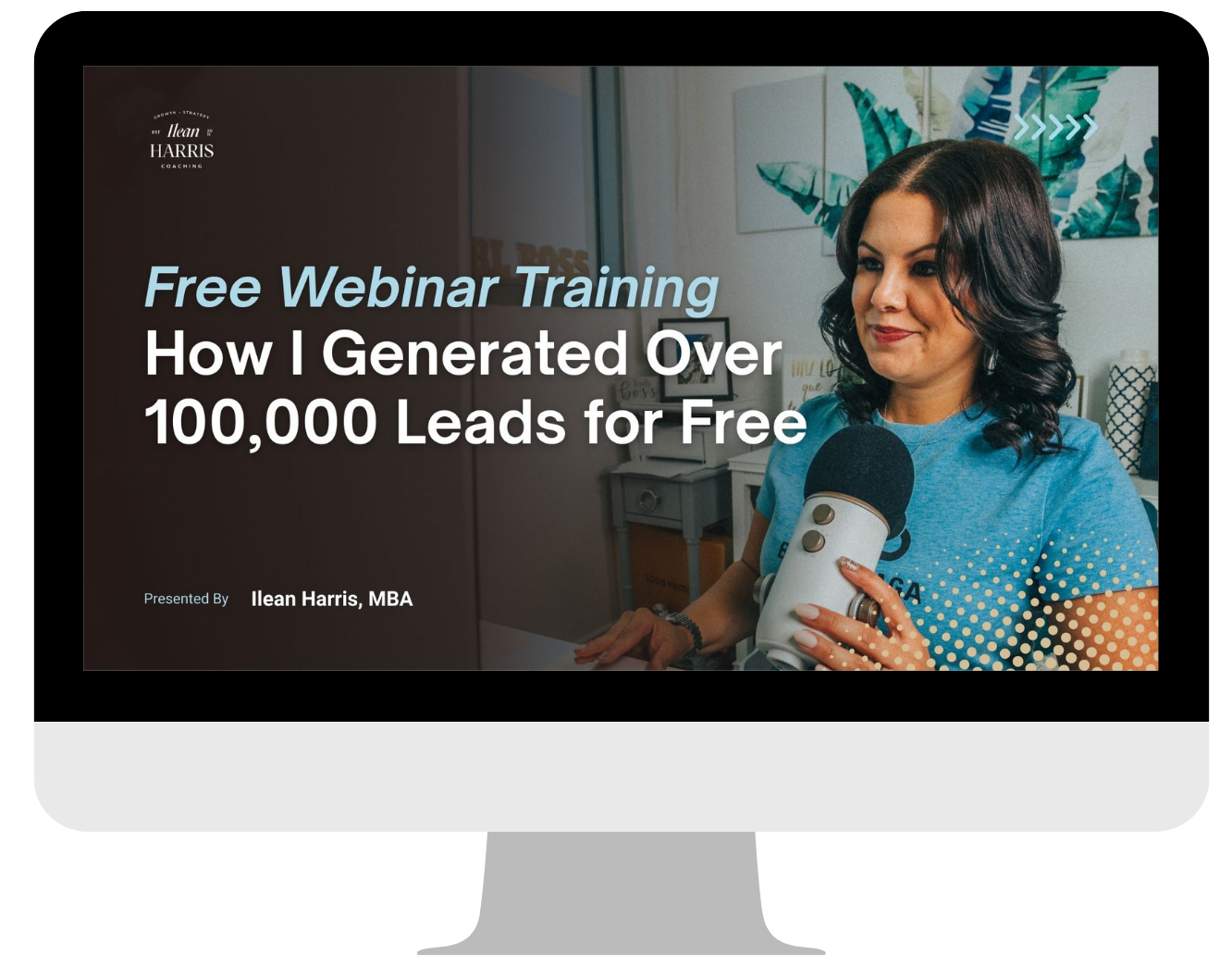This post is all about marketing on social media.

In today’s digital age, social media has become a powerful tool for building trust and authority as a coach.
By showcasing your expertise and demonstrating your value to your followers, you can attract new clients and grow your coaching business.
Coaching in particular isn’t like buying an outfit that you can try on before you buy it. That is why it is so powerful to share your expertise on social media and give your ideal clients a chance to see what it is like to work with you and learn from you before they buy your coaching packages.
After growing my coaching business in over 20 countries with clients in over 100 niches, I am excited to share with you how you can leverage social media to grow your coaching business.
In this blog post, we’ll explore some effective strategies for using social media to build trust and authority as a coach.
Building Trust and Authority: How to Use Social Media to Showcase Your Coaching Expertise
- Create a Strong Personal Brand Building a personal brand is essential for establishing trust and authority on social media. Start by defining your niche and crafting a message that aligns with your coaching philosophy. Use high-quality images, videos, and graphics to showcase your expertise and make a strong visual impact. Use consistent branding across all social media channels to create a cohesive online presence. Click here to learn more about building your brand and generating sales on social media.
- Share Valuable Content Sharing valuable content is a great way to establish your expertise and provide value to your followers. This could include blog posts, videos, podcasts, infographics, or social media posts that educate and inspire your audience. Make sure to use a mix of content formats and post regularly to keep your followers engaged.
- Engage with Your Followers Engagement is key to building trust and authority on social media. Respond promptly to comments and messages, and engage with your followers by asking questions and encouraging them to share their thoughts and experiences. This will help you to build a strong community of followers who trust and value your expertise.
- Leverage Social Proof Social proof is a powerful tool for building trust and authority. This could include testimonials, case studies, or reviews from satisfied clients. Share these on your social media channels to demonstrate the results you’ve achieved for your clients, and to showcase your expertise and credibility as a coach.
- Collaborate with Other Experts Collaborating with other experts in your niche is a great way to build trust and authority on social media. This could include co-hosting a webinar, writing a guest blog post, or collaborating on a social media campaign. By partnering with other experts, you can leverage their credibility and expertise to build your own authority and reach new followers.
Building trust and authority on social media as a coach takes time and effort, but it’s well worth the investment.
By creating a strong personal brand, sharing valuable content, engaging with your followers, leveraging social proof, and collaborating with other experts, you can establish yourself as a trusted and respected coach and grow your business.
Marketing on social media to generate leads
Social media is an incredibly powerful tool for generating leads and growing your business. With billions of users on various social media platforms, you have the potential to reach a massive audience and attract new customers.
Click here to learn more about generating leads on social media.
- Define Your Target Audience To generate leads on social media, you need to start by defining your target audience. Who are your ideal customers? What are their interests, needs, and pain points? Use this information to create a detailed buyer persona that you can use to guide your social media strategy.
- Create Compelling Content Creating compelling content is essential for generating leads on social media. This could include blog posts, videos, infographics, or social media posts that educate, inspire, or entertain your target audience. Use a mix of content formats and post regularly to keep your followers engaged.
- Use Lead Magnets A lead magnet is an offer or incentive that you provide to your followers in exchange for their contact information. This could include a free ebook, webinar, or consultation. Use lead magnets strategically to encourage your followers to sign up for your email list and take the next step in your sales funnel.
- Leverage Paid Advertising Paid advertising on social media can be an effective way to generate leads for your business. Platforms like Facebook, Instagram, and LinkedIn offer a range of advertising options that allow you to target specific demographics, interests, and behaviors. Use paid advertising to promote your lead magnets and drive traffic to your website.
- Engage with Your Followers Engagement is key to generating leads on social media. Respond promptly to comments and messages, and engage with your followers by asking questions and encouraging them to share their thoughts and experiences. This will help you to build a strong community of followers who trust and value your expertise.
- Measure Your Results To optimize your social media lead generation strategy, you need to measure your results. Use analytics tools to track your social media engagement, website traffic, and conversion rates. This will help you to identify what’s working and what’s not, and to make data-driven decisions to improve your results over time.
Generating leads on social media takes time and effort, but it can pay off in a big way for your business.
By defining your target audience, creating compelling content, using lead magnets, leveraging paid advertising, engaging with your followers, and measuring your results, you can use social media to attract new customers and grow your business.
Marketing on social media to promote your auto-webinar
An auto-webinar is a pre-recorded webinar that allows you to reach a large audience on your own time.
Marketing your auto-webinar on social media can help you to attract new leads, increase your brand awareness, and drive traffic to your website.
- Create a Landing Page for Your Auto-webinar Before you start promoting your auto-webinar on social media, you need to create a landing page where interested viewers can sign up to watch the webinar. Your landing page should include a clear and compelling headline, a brief description of the webinar’s content, and a call-to-action button that encourages visitors to sign up.
- Use Paid Advertising to Promote Your Auto-webinar Paid advertising is a powerful tool for promoting your auto-webinar on social media. Platforms like Facebook, Instagram, and LinkedIn offer a range of advertising options that allow you to target specific demographics, interests, and behaviors. Use paid advertising to drive traffic to your landing page and increase your webinar’s visibility.
- Promote Your Auto-webinar on Your Social Media Channels Promoting your auto-webinar on your own social media channels is an effective way to reach your existing followers and encourage them to sign up. Use a mix of social media formats, including posts, stories, and live video, to showcase your auto-webinar’s content and value. Make sure to use clear and compelling messaging and include a call-to-action in each post.
- Leverage Influencer Marketing Partnering with influencers in your niche is a great way to reach a new audience and promote your auto-webinar. Identify influencers who have a strong following and whose audience aligns with your target market. Reach out to these influencers and offer them a commission or other incentive to promote your auto-webinar to their followers.
- Utilize Email Marketing Email marketing is a powerful tool for promoting your auto-webinar and encouraging people to sign up. Use your existing email list to promote your auto-webinar and send follow-up emails to those who have signed up. Make sure to use clear and compelling messaging in your emails and include a call-to-action that encourages viewers to sign up for the webinar.
Promoting your auto-webinar on social media takes time and effort, but it can pay off in a big way for your business.
Click here for the ultimate guide to crafting a marketing social media strategy.
By creating a landing page for your auto-webinar, using paid advertising, promoting on your own social media channels, leveraging influencer marketing, and utilizing email marketing, you can use social media to attract new leads and increase your brand awareness.
This post was all about marketing on social media.







